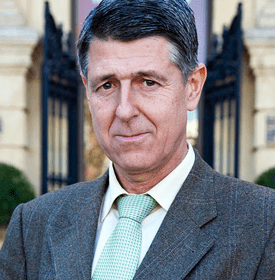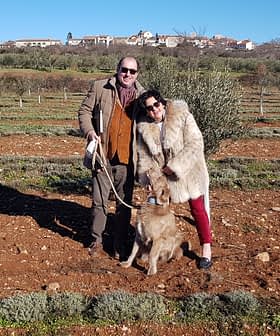The future of the olive oil sector’s governing body – the International Olive Council (IOC) – and progress in transatlantic free trade talks were among issues debated at the latest meeting of the European Commission’s Advisory Group on Olives and Derived Products.

Transatlantic free trade talks
Spain’s Rafael Sánchez de Puerta Díaz chairs the group, which meets twice a year to inform the commission of the views of various stakeholders, and he said the June 10 meeting also saw discussion of the need for continued implementation of the EU olive oil action plan and for more accurate market data.
Sánchez said the group was given an update by the Commission on progress on its free trade talks with the U.S. He said members of the advisory group stressed the need to push for homogenization of standards applying to the olive oil sector and the removal of trade barriers, in particular in relation to residues of the pesticide chlorpyrifos-ethyl, which continues to see some containers of olive oil rejected in American ports.
Future of the IOC
With the 2005 agreement on the operation of the IOC expiring at the end of the year, discussion continued on the council’s future. Sánchez said the group supports the IOC becoming more involved not just in producer countries but in consumer ones, particularly to promote understanding and acceptance of its regulations on quality and purity.
EU olive oil action plan
Sánchez said the advisory group reminded the Commission about the need to continue with the implementation of its olive oil action plan, in particular support for research on the control of the quality and purity of olive oil and promotion of more consistent consumer information and improved product classifications and definitions.
Though there is consensus in the group for changing the current IOC definition of “olive oil” – which is refined oil with some virgin olive oil – Sánchez said no alternatives had been proposed. “I think it’s up to the packaging sector to develop a concrete proposal,” he said.
Possible amalgamation of EU advisory groups
There’s talk within the Commission of possibly combining various of the EU advisory groups, such as those on olives and derived products, on fruit and vegetables, and on spirit drinks. Sánchez said the olive group had expressed its complete objection to such a move, which would combine very different products.
Inaccuracy of olive oil production and trade estimates
Sánchez said there continues to be concern within the advisory group about the accuracy of production and trade statistics. “Very often there are differences between what the governments report to the Commission and what a country’s producer organizations say, and this is mainly occurs in Italy,” he said.
Similarly, and though it’s improving, discrepancies are seen in the trade balances published by the IOC, probably due to mismanagement of data in the countries providing the figures, he said.
While the latest IOC market newsletter reported a year-on-year drop in olive oil and olive pomace oil imports of nearly 8 percent across seven major markets, Sánchez said he believes the world market “is still growing.”
Sánchez in new role with Dcoop
Sánchez was elected chairman of the Advisory Group on Olives and Derived Products last year. In May this year he was appointed as an assistant general manager of Dcoop (formerly known as the Hojiblanca Cooperative Group), the world’s biggest producer of extra virgin olive oil. The former director general of FAECA, the Andalusian Federation of Agricultural Cooperative Enterprises, he continues to represent the sector at various levels including on committees of the IOC and EU farmer lobby Copa-Cogeca.








